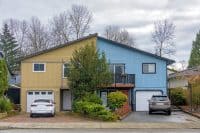 The second-quarter foreclosure report from RealtyTrac was published this morning and at first glance it might seem that sales of foreclosed homes could be an anchor of sorts for the housing market. In the second quarter, 23% of all home sales involved a property in some stage of foreclosure or a bank-owned property. That represents a rise from 22% in the first quarter of the year and a rise from 19% in the second quarter of 2011.
The second-quarter foreclosure report from RealtyTrac was published this morning and at first glance it might seem that sales of foreclosed homes could be an anchor of sorts for the housing market. In the second quarter, 23% of all home sales involved a property in some stage of foreclosure or a bank-owned property. That represents a rise from 22% in the first quarter of the year and a rise from 19% in the second quarter of 2011.
But that’s as a percentage of total sales. The actual numbers involved paint a much different picture. In the second quarter the number of foreclosed sales was down 12% — 224,429 homes — from the first quarter and down 22% compared with a year ago. That’s the first year-over-year decrease following five quarters of increases.
Better yet, the average sales price for a foreclosed home rose 6% quarter-over-quarter to $170,040, and was up 7% year-over-year. A foreclosed or bank-owned home sold for 32% less than a nonforeclosed property, a larger discount than either the prior quarter or the year-ago quarter.
A RealtyTrac executive summed it up this way:
The second quarter sales numbers provide solid statistical evidence of what we’ve been hearing anecdotally from real estate agents, buyers and investors over the past few months: there is a limited supply of available foreclosure inventory to choose from in many markets. Given this shortage of supply and the seasonally strong buyer demand in the second quarter, it’s no surprise that the average foreclosure-related sales price increased both on a quarterly and annual basis.
Another interesting development in the quarter was the increase in sales of preforeclosed properties, called “short sales” in real estate lingo. The gap between foreclosure sales and short sales is closing, but the number of short sales is also dropping. The average price of home sold short was $185,062. The average price of a bank-owned property was just $155,892.
The RealtyTrac executive notes:
The increase in short sales of properties that have not even started the foreclosure process indicates that lenders are moving further upstream to deal with their distressed inventory, thereby avoiding the increasingly complex and lengthy foreclosure process altogether.
The good news here is that the growth of short sales at higher sales prices than either foreclosed or bank-owned properties will raise house prices generally, and that fewer properties will end up in foreclosure or bank-ownership. As prices rise and inventory falls, construction of new homes and normal sales of existing homes should continue to increase. It is a slow process, but it appears to be working.
The RealtyTrac report is available here.
Paul Ausick
Travel Cards Are Getting Too Good To Ignore (sponsored)
Credit card companies are pulling out all the stops, with the issuers are offering insane travel rewards and perks.
We’re talking huge sign-up bonuses, points on every purchase, and benefits like lounge access, travel credits, and free hotel nights. For travelers, these rewards can add up to thousands of dollars in flights, upgrades, and luxury experiences every year.
It’s like getting paid to travel — and it’s available to qualified borrowers who know where to look.
We’ve rounded up some of the best travel credit cards on the market. Click here to see the list. Don’t miss these offers — they won’t be this good forever.
Thank you for reading! Have some feedback for us?
Contact the 24/7 Wall St. editorial team.


